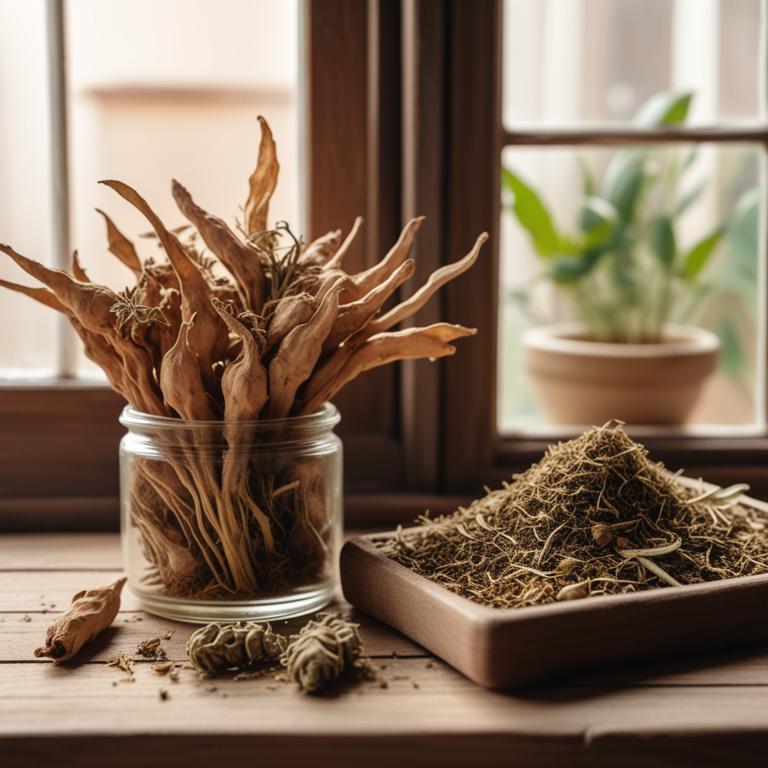Updated: Dec 1, 2024
Inflamed Gums: A Guide to Causes, Medicinal Herbs, and Remedies

Inflamed gums can be a real nuisance, causing pain, swelling, and bleeding when you eat or brush your teeth.
If left untreated, it can lead to more serious problems like tooth loss and bad breath. Inflamed gums, also known as gingivitis, is often caused by poor oral hygiene, smoking, and certain medical conditions like diabetes and heart disease. When your gums become inflamed, it's essential to address the issue to prevent further damage. One way to do this is by using herbal remedies that have anti-inflammatory and antibacterial properties.
Aloe vera, for instance, is known for its soothing effects on irritated gums, while eucalyptus oil has antibacterial properties that can help combat infection. You can prepare aloe vera and eucalyptus oil into a mouthwash or a paste to apply directly to your gums. Some herbal teas, like peppermint and chamomile, can also help reduce inflammation and ease pain. Simply steep a tea bag in hot water, let it cool, and use it as a mouthwash.
To make the most of these herbal remedies, remember to practice good oral hygiene and visit your dentist regularly for check-ups.
Table of Contents
What leads to the inflammation and swelling of the gums?
The main causes of inflamed gums are quite straightforward and often linked to our lifestyle and biology.
Poor Oral Hygiene is one of the most common causes. When we don't brush and floss regularly, plaque builds up on our teeth, leading to inflammation and redness in the gums. This is because plaque contains bacteria that irritate the gums, causing them to become inflamed. Another cause is Gingivitis, a mild form of gum disease. Gingivitis occurs when plaque is not removed and the gums become infected, leading to inflammation and bleeding. If left untreated, Gingivitis can develop into a more serious condition called Periodontitis. This is a bacterial infection of the gums that causes the bone and tissue supporting the teeth to break down, leading to loose teeth and tooth loss.
Smoking is also a major contributor to inflamed gums. Smoking reduces blood flow to the gums, making them more prone to infection and inflammation. Additionally, the chemicals in tobacco smoke damage the gums and bone, leading to periodontal disease. Hormonal Changes can also cause inflamed gums. During pregnancy, menstruation, and menopause, hormonal fluctuations can cause the gums to become swollen and tender. This is due to the increased blood flow and sensitivity of the gums during these times. Lastly, Genetic Predisposition can play a role in inflamed gums. Some people may be more prone to gum disease due to their genetic makeup.
This is because certain genetic traits can affect the way the body responds to plaque and bacteria, making it more susceptible to gum disease.
What benefits can be obtained from using herbs for inflamed gums?
Using certain herbs can be really beneficial for inflamed gums.
These herbs have anti-inflammatory properties, which help reduce swelling and pain. They can also kill the bacteria that cause gum infections, promoting healthy healing.
Additionally, some of these herbs have antibacterial and antifungal properties, which prevent further infections and promote a balanced oral environment. Using these herbs can also help reduce bad breath, which is often a symptom of inflamed gums. Furthermore, some herbs have antioxidant properties, which can help repair and protect the gums, preventing further damage.
By using these herbs, you can help manage the symptoms of inflamed gums and promote overall gum health.
What are the primary herbal treatments for inflamed gums?

Herbs have been used for centuries to help soothe and heal inflamed gums.
One of these herbs is Echinacea purpurea, which has anti-inflammatory properties that can help reduce swelling and ease pain. It also has antimicrobial properties, which can help fight off bacteria that can cause infections. Salvia officinalis, or sage, is another herb that can help with inflamed gums. It has anti-inflammatory compounds that can help calm down the inflammation and reduce pain. Sage also has antiseptic properties, which can help prevent infections from spreading. Curcuma longa, or turmeric, contains a powerful compound called curcumin, which has potent anti-inflammatory properties.
Curcumin can help reduce inflammation and pain, and it also has antimicrobial properties that can help fight off bacteria. Melaleuca alternifolia, or tea tree oil, is a natural antiseptic that can help prevent infections from spreading. It's also anti-inflammatory, which can help reduce swelling and ease pain. Tea tree oil is often used in mouthwashes and toothpastes to help soothe and heal inflamed gums. Aloe vera is a natural soothing agent that can help calm down inflamed gums. It has anti-inflammatory properties that can help reduce swelling and ease pain. Aloe vera is also antimicrobial, which can help fight off bacteria that can cause infections.
When applied topically to the gums, aloe vera can help soothe and heal the tissue, reducing inflammation and pain.
What are the top herbal treatments for inflamed gums?
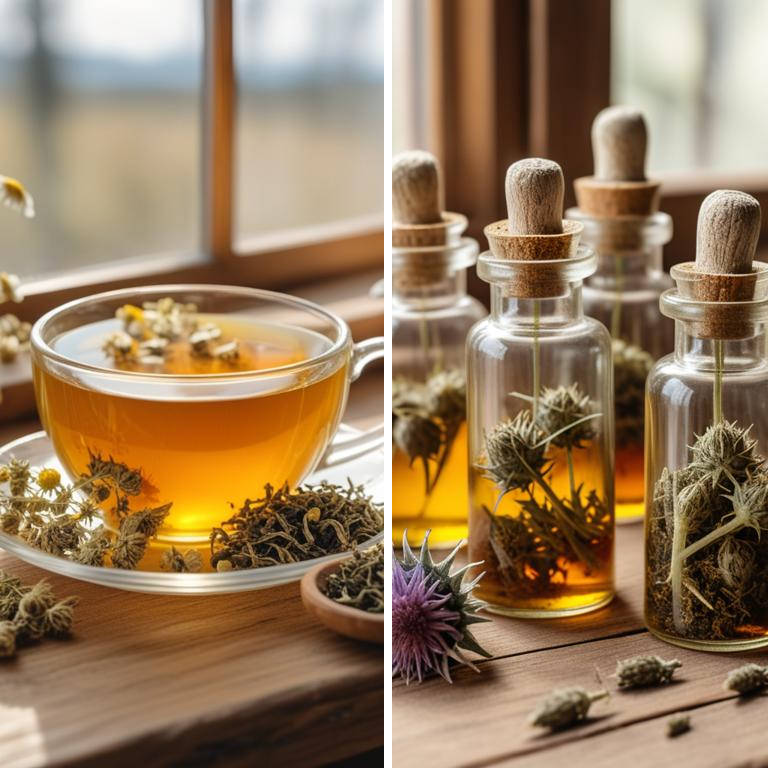
Herbal preparations can be really helpful for inflamed gums.
A decoction is a strong liquid made by boiling herbs in water. For inflamed gums, you can try a decoction of calendula or chamomile, which have anti-inflammatory properties that can help soothe and calm the gums. A herbal tea can also be useful, as it's easy to drink and can be made with a variety of herbs like peppermint, sage, or echinacea. These herbs have properties that can help reduce inflammation and kill bacteria that can cause gum infections. A tincture is a concentrated liquid made by soaking herbs in a solvent like vodka or glycerin.
You can apply a tincture of tea tree oil or eucalyptus to your gums using a cotton swab, which can help reduce inflammation and kill bacteria. A salve is a topical cream or ointment that can be applied directly to the gums. You can make a salve using herbs like aloe vera, which has anti-inflammatory properties that can help soothe and calm the gums. You can also take herbal supplements in the form of capsules, which contain dried herbs that have been powdered and filled into a gelatin capsule. For inflamed gums, you can try capsules containing herbs like turmeric or ginger, which have anti-inflammatory properties that can help reduce swelling and pain.
Remember to talk to a healthcare professional before trying any new herbal preparations, especially if you're already taking medications or have underlying health conditions.
Additional Resources:
If you have inflamed gums, which herbs are contraindicated?
If you have inflamed gums, it's best to be careful with certain herbs that might make things worse.
Ginkgo biloba can cause bleeding, which is not what you need when your gums are already swollen and sore. Glycyrrhiza glabra, or licorice root, has a compound that can raise blood pressure and affect your kidneys, and inflamed gums can be a sign of a bigger issue with your health.
Zingiber officinale, or ginger, can irritate the mouth and throat, making it painful to eat and drink, which won't help with your gum problem. Thymus vulgaris, or thyme, has oils that can be too harsh for inflamed gums and might even cause more bleeding.
Cinchona officinalis, or cinchona bark, contains quinine, which can be toxic in large amounts and might make your gum inflammation worse.
FAQ
Are there any specific herbs that can prevent inflamed gums?
Gum inflammation can be prevented with the help of certain herbs.
Turmeric contains curcumin, a compound that reduces inflammation and fights bacteria. Ginger also has anti-inflammatory properties that help soothe swollen gums. Cloves contain eugenol, a natural antiseptic that kills germs and reduces swelling.
These herbs can be used in tea or applied directly to the affected area.
Is it safe to use herbal remedies for inflamed gums during pregnancy?
If you're pregnant and have inflamed gums, it's a good idea to be careful with herbal remedies.
Some herbs, like sage and ginger, are considered safe, but others, like willow bark and evening primrose, may not be suitable.
Always check the ingredients and look for products specifically designed for pregnant women.
Are there any herbs that can reduce the frequency of inflamed gums?
Some herbs may help reduce inflamed gums.
For example, aloe vera has anti-inflammatory properties that can soothe swollen gums. Cloves contain compounds that have antibacterial effects, which can help combat infection that leads to inflamed gums.
These herbs can be used in various forms, such as mouthwashes or toothpaste, to potentially alleviate gum inflammation.
Can i combine different herbal remedies for inflamed gums?
Combining herbal remedies for inflamed gums can be a good idea, but use caution.
Some herbs, like aloe vera and peppermint, have anti-inflammatory properties. Mixing them with herbs like tea tree oil or eucalyptus might enhance their benefits.
Just remember to start with small amounts and observe how your gums react before increasing the dosage or adding more herbs.
Related Articles

Inflamed Gums: A Guide to Causes, Medicinal Herbs, and Remedies
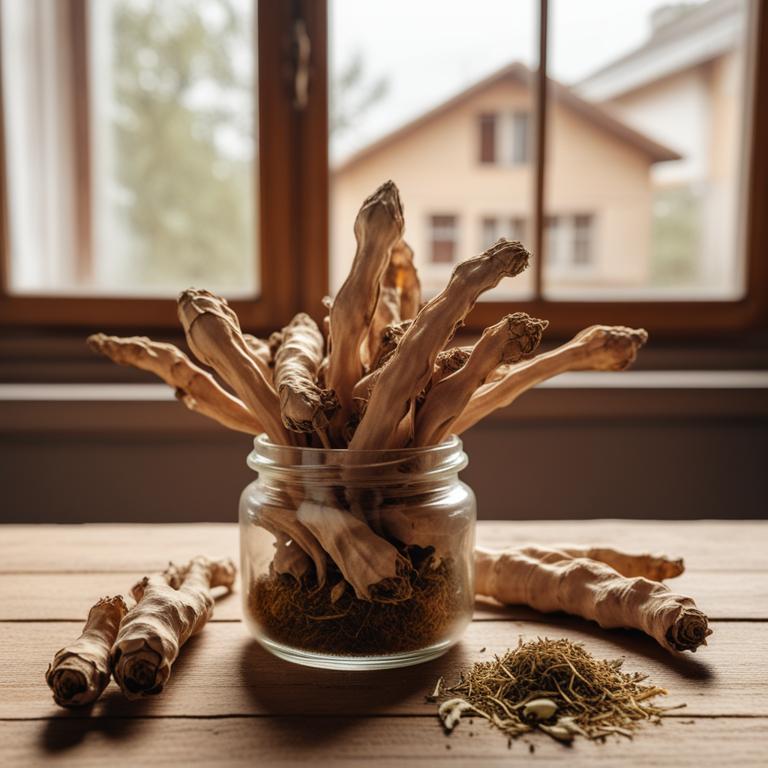
Inflammation: Understanding the Causes and the Therapeutic Use of Medicinal Herbs and Herbal Preparations
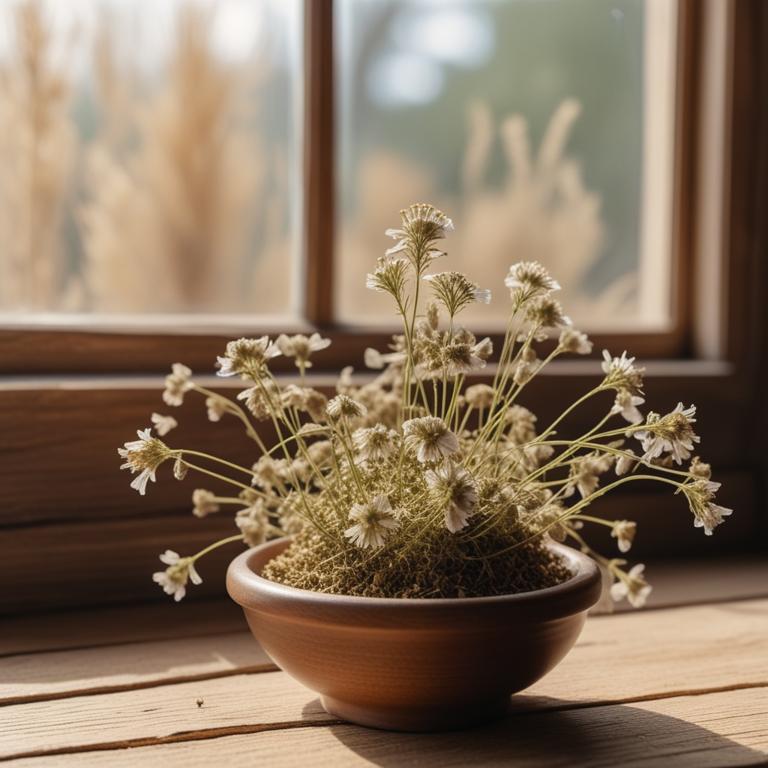
Pink Eye Causes and Natural Treatments with Medicinal Herbs
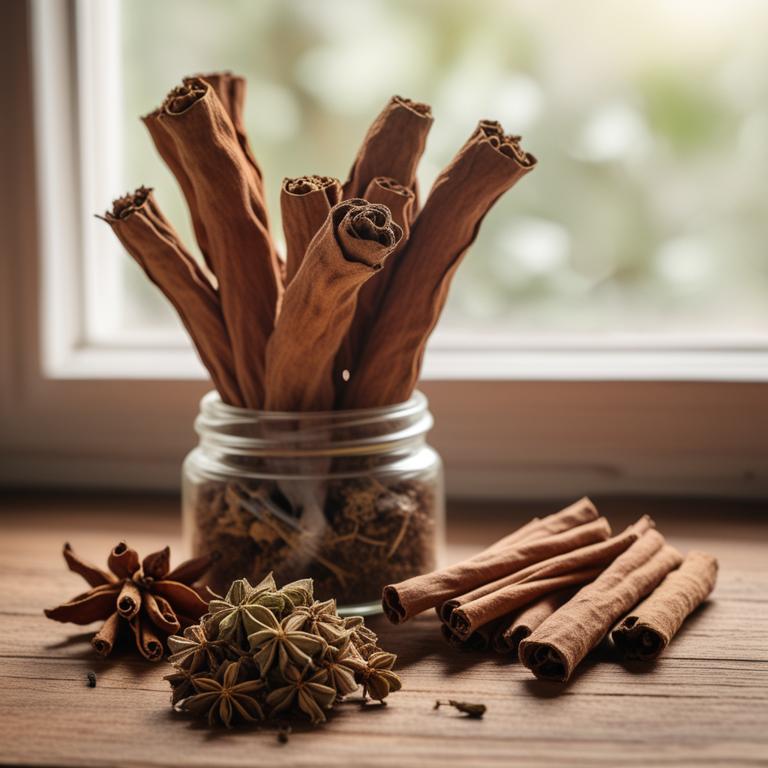
Enlarged Spleen and Herbal Medicine: Understanding the Connections

Strep Throat: Causes, Herbal Remedies for Sore Throat, and Medicinal Herbs






